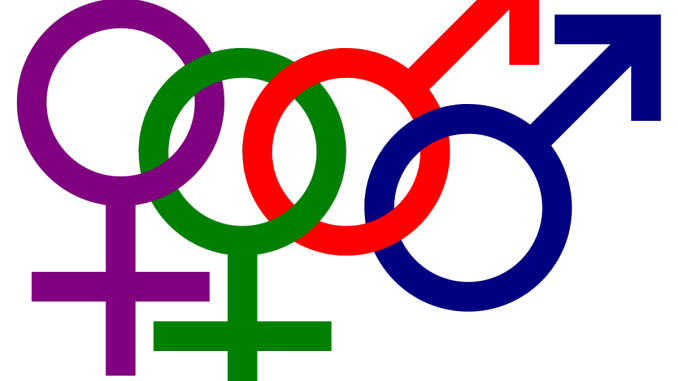
Chelsea Sookra, Staff Writer |
On Wednesday, Sept. 23, Dr. Charlene Christie (SUNY Oneonta Psychology Professor and Women’s and Gender Studies Department Chair) presented her research on concealable stigma and social support as part of the Gender Out of Bounds series in the Waterfront Room.
Christie began her presentation off with the question of “What is Stigma?” with two definitions. According to Erving Goffman (1963), “a person who is stigmatized is a person whose social identity or membership in some social category calls into question his or her full humanity — this person is devalued, spoiled or flawed in the eyes of others.” In the words of Frable, Platt, and Hoey (1998), “Being culturally stigmatized means being rejected because of a particular group membership.”
Christie then brought up the topic of concealable stigma. Concealable stigma is defined as membership in a culturally devalued category that others can hide or conceal. It is often contrasted with conspicuous stigma or stigma that can be visibly seen. Examples of concealable stigma are being HIV positive, incarceration history, being a victim of sexual assault, mental health diagnoses such as depression or anxiety, and sexual orientation such as lesbian, gay, and bisexual (known in this study as LGB).
Why do concealable stigmas matter? While those with a concealable stigma may be protected from discrimination because their stigma goes undetected, they face struggles such as the cognitive implications of deciding whether they should disclose this aspect of their identity and the difficulties finding other group members, which leads to limited social support.
Christie focused specifically on sexual orientation stigma. Meyer (2003) states that social stress from chronic discrimination is one of the predominant predictors of psychological distress among sexual minorities. LGB folks report discrimination and microaggressions in their daily lives more than their heterosexual peers.
The “need to belong” is understood as a fundamental motivation within human psychology. Social support is crucial for those with concealable identities due to having fewer opportunities to identify sources of validation. It has been found that LGB college students had more psychological distress and lower social well-being than other first-year college students. LGB students also may not have families that approve of their identity for their social support needs.
Dr. Christie did a study asking participants if they identified as LGB, their social support levels, psychological well-being, and anxiety levels. Her predictions were consistent with past research being that LGB students would state lower social support levels, lower psychological well-being, and higher anxiety levels. The limitations in this study were a limited population of interest, and allies of the LGB were removed from the heterosexual group due to having close relationships with the marginalized group. Christie also only looked at sexual orientation and did not include nonbinary or trans students in her study due to the difference between sexual orientation stigma and gender stigma.
Her data included 76 LGB students (finding LGB participants difficult) and 76 heterosexual participants (35 women and 41 men). The average age of participants was 20, and participants were event distributed from freshman to senior year. 76% of participants were white, 12% were Hispanic, 5% black, and 4% biracial (consistent with SUNY Oneonta’s current demographics).
Seventy items were asked and fit into three measures: social support, psychological well-being, and anxiety. Participants answered zero to four, zero being none of the time and four being always. An example of a social support item was “How often do people comfort you?” Psychological well-being consisted of “How often have you felt happy or satisfied with your life?” and anxiety consisted of “How often have you had difficulty trying to calm down?” Participants were also asked questions in reverse wording to account for response bias.
Christie’s first hypothesis was supported with LGB students having a mean of 3.05 on social support, with heterosexual students, had a mean of 3.40. Her second hypothesis was supported as well, with LGB students having a mean of 2.80 on psychological well-being while heterosexual students had 3.60. Her third hypothesis was not supported, with no significant difference in anxiety levels in the two groups. Gender, race, age, and school year were covariates, with gender being a significant predictor variable.
LGB men had the lowest social support and the lowest psychological well-being. Social support is known to change based on gender. Gender differences were not accounted for, but they make sense and should have been accounted for.
The study had limitations of a homogeneous sample (white college students in NY), individual differences in “outness” within concealable stigma groups should have been considered, a broad measure of social support may obscure specific challenges for this population (personal support vs. academic). This data was collected in an especially supportive environment as SUNY Oneonta has many LGB resources in place.
Christie’s study adds to the growing body of research proving that the “strongest resistance to psychological distress comes from having meaningful relationships with others and a strong sense of community,” along with adding recommendations about how universities can provide for future sexual minorities by emphasizing the significance of perceived social support. It is not enough to solely have anti-harassment policies in place, and those policies need to focus on creating community.
Dr. Christie’s study has been published titled “What Is Hidden Can Still Hurt: Concealable Stigma, Psychological Well-Being, and Social Support Among LGB College Students” if you’d like to read more.
Leave a Reply